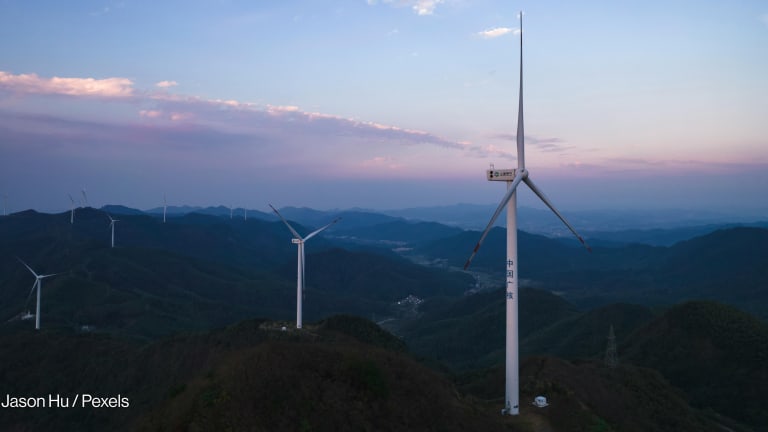
UNITED NATIONS — The world’s largest emitters did not answer U.N. Secretary-General António Guterres’ call for “concrete” commitments on climate change during the U.N. Climate Action Summit. But some companies, foundations, and other players made it clear this week that they are ready to move forward on climate adaptation and mitigation plans, according to experts on climate change and food security.
“The meeting was a stepping stone, but definitely not the end and there needs to be a lot of work to increase the momentum at government level,” said Yamide Dagnet, senior associate at the World Resources Institute’s International Climate Action Initiative.

Activism. UHC. Climate. Read more of Devex's coverage from the 74th U.N. General Assembly.
“We’re seeing the private sector, financial institutions, saying, ‘Hey, hey, we are kind of ready for this, but we cannot do your job.’ We heard that from the Bank of England, and heard from a number of companies deciding to be carbon neutral, but they need commensurate signals from the governments.”
China and the United States, the world’s two largest emitters of greenhouse gases, made no new commitments during the summit.
But heightened public anxiety over climate change during worldwide protests last Friday translated into sustained momentum during Global Goals Week, where many major contributions and pledges happened away from the national government level.
“The level of anxiety has not been so high for achievement of climate action and we should be very much more responsive,” said Agnes Kalibata, Rwanda’s former minister of agriculture and the head of one of Africa’s largest agriculture-focused NGOs, AGRA.
The impacts of rising food insecurity in Africa and uncertain crops have become more visible in the past few years, Kalibata told Devex.
“Rains are not coming even as we speak, so these people are worried. If they do not come they will be hungry,” Kalibata said. “We have all the right talk, but we are not stepping forward in the right way. We expect that countries need to put this on their agenda, but where will developing countries get the money from?”
The Bill & Melinda Gates Foundation and several other funders announced on Monday they would give $790 million to support resilience of over 300 million small-scale food producers. The Netherlands, the European Commission, Sweden, Switzerland, the United Kingdom, Germany, and the World Bank will also support this work.
New contributions to the U.N. Green Climate Fund were also announced during the summit, replenishing the fund to more than $7.3 billion, ahead of its pledging conference in October. Doubled contributions by countries such as South Korea — which gave $200 million to the Green Climate Fund — are notable, Dagnet said.
Some higher-income countries, such as Germany, the U.K., and Canada, doubled their pledges to the fund. But several small developing countries also came forward with their own commitments, Dagnet noted. In May, Barbados became the first Green Climate Fund-backed Caribbean country to implement water scarcity adaptation and mitigation work. Barbados Prime Minister Mia Mottley said on Monday that countries should expect a mass migration of Caribbean climate refugees in the next few years.
“[Small islands] are incubators of the solutions for the global problem. What is happening at small scale could be replicated.”
— Yamide Dagnet, senior associate, World Resources Institute’s International Climate Action Initiative“We see small countries, especially small islands, still leading the charge, leading by example. There were powerful speeches from small islands, especially the prime minister of Barbados and prime minister of St. Lucia,” Dagnet said. “They are incubators of the solutions for the global problem. What is happening at small scale could be replicated.”
Still, these countries cannot be expected to lead on adaptation and mitigation work alone, Kalibata said.
“Some of the countries that are most vulnerable do not have the means, when they are trying to deal with health care and other development issues, and on top of that they have the climate challenge. Resources are not becoming available for countries trying to adapt for climate change, or for businesses trying to survive in that environment,” she said.
The question of financing alignment is “huge,” according to Mariana Panuncio-Feldman, senior director of international climate cooperation at World Wildlife Fund-US.
“The Paris Agreement calls for shifts in financial flows. We are starting to see that. What we are seeing now is some positive signals, but this is a very messy, muddy period,” Panuncio-Feldman explained to Devex. “But you see some promises. What we do not see yet is the level of alignment that we need to see in order to accelerate the process.”
Activism. UHC. Climate. Read more of Devex's coverage from the 74th U.N. General Assembly.








